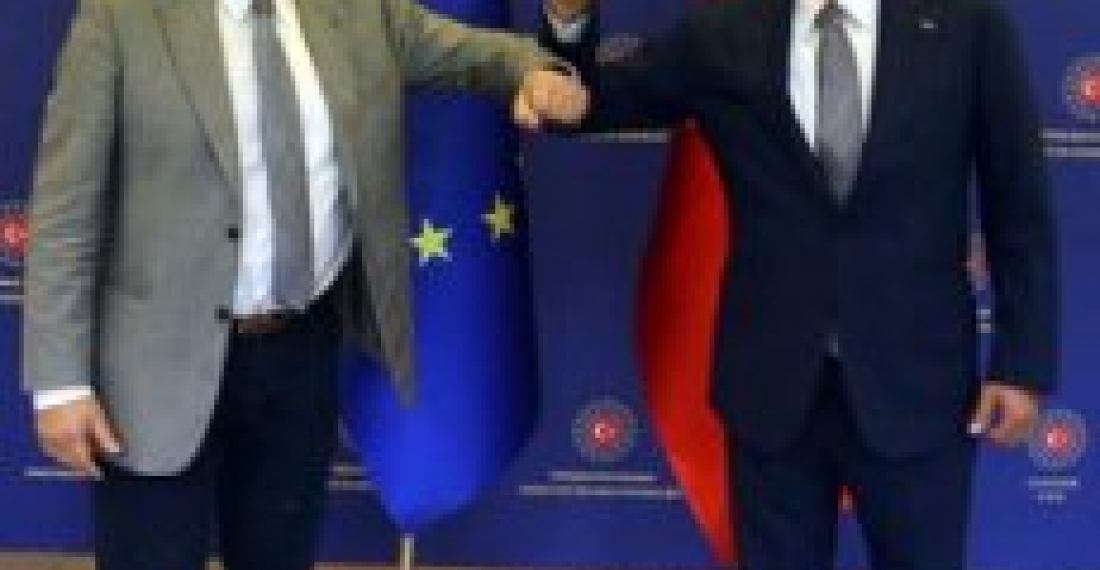The European Union High Representative for Foreign Affairs and Security, Josep Borrell emphasised the need to take a comprehensive approach in addressing EU-Turkey relations, and called for a more intensive dialogue to start addressing pending issues.
Borrell paid a two-day visit to Turkey and met with Foreign Minister Mevlut Cavusoglu and Defense Minister Hulusi Akar. His visit comes a week before the EU's foreign affairs council and European Parliament will hold special sessions to discuss the ties with Ankara.
Speaking to journalists after the meeting with the Turkish Foreign Minister, Borrell admited that there were serious problems in the relationship, which he described as being far from ideal, but said that both have to make the relations the best possible:
"We cannot abolish geography, whatever happens, Turkey will be a central actor in the Eastern Mediterranean, a neighbour of Europe and an important partner. It is impossible to finish our relations. We have to have relations and they have to be the best possible [ones]. There are many serious issues that require our immediate attention. I want to change for the best the dynamics in our relationship because I believe that we have a mutual interest to get out of this situation and chart a new and positive trajectory, avoiding any kind of incident that could spark more troubles."
Borrell later tweeted
— Josep Borrell Fontelles (@JosepBorrellF) July 6, 2020
On his part, Tukish Foreign Minister Mevlut Cavusoglu told journalists after the meeting with Borrell that Turkey has warned the European Union that it will retaliate if Brussels decides to impose new sanctions on it over the ongoing dispute in the eastern Mediterranean ahead of a meeting of the EUs 27 member states which is due to discuss ongoing problems with Turkey.
"We observe that Turkey will be on the agenda of the EU in the coming days. Taking decisions against Turkey will not resolve the existing problems; on the contrary, it will deepen them. If the EU takes additional measures against Turkey, we'll have to respond," Foreign Minister Mevlüt Cavusoglu told a joint press conference with the bloc's foreign minister, Josep Borrell, on July 6 in Ankara.
"If you further sanction Turkey, we also have steps to take in the field, in the eastern Mediterranean," Cavusoglu said.
Both sides agreed to intensify contacts going forward. "I hope that in the future, once the pandemic will stop imposing constraints, we will be able to increase our contacts, our conversations because we have a lot of things to talk [about], a lot of problems to solve and the common endeavour of improving the relation between Turkey and the European Union£, Borrell stated.
source: commonspace.eu with agencies
photo: EU High Representative Josep Borrell and Turkish Foreign Minister Mevlut Cavusoglu after their meeting in Ankara on 6 July 2020 (picture courtesy of the Twitter feed of @JosepBorrellF






